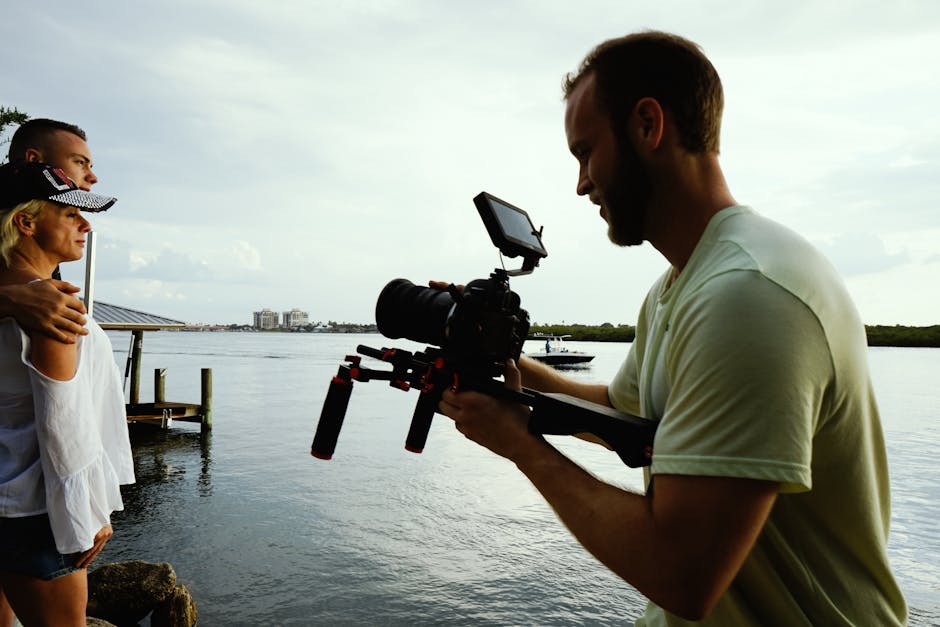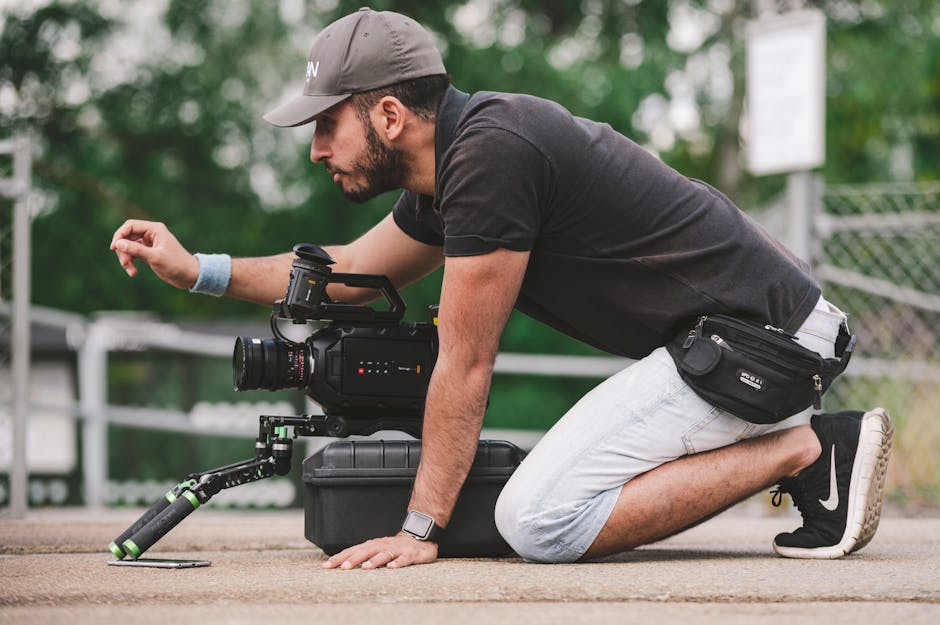The Art of Documentary Filmmaking: Behind-the-scenes Stories

Documentary filmmaking is an intricate art form that goes beyond just pointing a camera and capturing real-life events. It involves deep research, creative storytelling, and technical expertise to create compelling narratives that resonate with audiences. This genre of film provides unique insights into various aspects of human life, history, and the world around us.
The Evolution of Documentary Filmmaking
The history of documentary filmmaking dates back to the early 20th century. One of the earliest examples is Robert J. Flaherty's "Nanook of the North" (1922), which depicted the life of an Inuit family. This pioneering work set the stage for what would become a significant genre in cinema. Over the years, technological advancements have played a crucial role in shaping documentary filmmaking.
In the 1960s, the introduction of lightweight cameras and portable sound equipment revolutionized the field. Filmmakers could now capture events as they happened, leading to the rise of cinéma vérité, a style characterized by its observational approach. Works like "Primary" (1960), which followed John F. Kennedy's primary campaign, exemplify this style.
Today, digital technology has further transformed documentary filmmaking. High-definition cameras, drones, and advanced editing software allow filmmakers to produce high-quality content with relative ease. Platforms like Netflix and YouTube have also provided new avenues for distribution, making documentaries more accessible to a global audience.
Research and Planning
Research is the cornerstone of any successful documentary. Filmmakers spend months or even years investigating their subjects to ensure accuracy and depth. This process often involves reading books, analyzing archival footage, and conducting interviews with experts and eyewitnesses.
Planning is equally crucial. A well-structured documentary requires a clear outline or script to guide the filming process. This helps in organizing the narrative flow and ensures that all necessary elements are captured efficiently.
For instance, Ken Burns' documentaries are renowned for their meticulous research and planning. His series on the American Civil War involved extensive archival research and interviews with historians to provide a comprehensive view of the era.
Technical Aspects
Documentary filmmaking demands proficiency in various technical aspects such as camera work, sound recording, and editing. The choice of equipment can significantly impact the quality of the final product.
- Cameras: Modern documentaries often use DSLR or mirrorless cameras for their versatility and image quality.
- Sound: High-quality microphones are essential for capturing clear audio, especially in interviews.
- Editing: Software like Adobe Premiere Pro or Final Cut Pro is commonly used for editing footage and adding effects.
A great example is "March of the Penguins" (2005), which used specialized cameras to capture stunning visuals in extreme Antarctic conditions. The film's exceptional cinematography played a significant role in its success.
Storytelling Techniques
The art of storytelling is at the heart of documentary filmmaking. Even though documentaries are based on real events, they still need a compelling narrative to engage viewers.
One effective technique is using a central character or protagonist to drive the story forward. This allows viewers to connect emotionally with the subject matter. For instance, "Super Size Me" (2004) follows Morgan Spurlock as he eats only McDonald's food for 30 days, providing a personal perspective on fast food's impact on health.
Another technique is incorporating multiple perspectives through interviews and archival footage. This adds depth to the narrative by presenting different viewpoints on the same issue. "13th" (2016) by Ava DuVernay masterfully employs this technique to explore systemic racism in the U.S. criminal justice system.
Ethical Considerations
Ethics play a vital role in documentary filmmaking. Filmmakers must navigate various ethical dilemmas, such as maintaining objectivity while telling a compelling story and respecting their subjects' privacy and dignity.
One notable case is "The Act of Killing" (2012), where director Joshua Oppenheimer worked closely with former Indonesian death squad members who reenacted their crimes for the camera. The film sparked debates about ethical boundaries in documentary filmmaking but also shed light on a dark chapter in history that was previously overlooked.
To address these issues, filmmakers often follow established ethical guidelines provided by organizations like the International Documentary Association (IDA). These guidelines emphasize honesty, fairness, and respect for subjects' rights throughout the production process.
The Impact of Documentaries
Documentaries have the power to inspire change by raising awareness about critical social issues. They can influence public opinion, shape policy decisions, and even spark movements for social justice.
| Documentary | Impact |
|---|---|
| "An Inconvenient Truth" (2006) | Brought global attention to climate change; influenced environmental policies worldwide. |
| "Blackfish" (2013) | Exposed cruelty in marine parks; led to changes in SeaWorld's practices. |
| "The Cove" (2009) | Shed light on dolphin hunting in Japan; inspired activism against animal cruelty. |
The impact of these films highlights the importance of documentary filmmaking as a tool for education and advocacy. By presenting factual information engagingly and persuasively, documentaries can drive meaningful conversations and actions around pressing issues.
The art of documentary filmmaking encompasses various elements—from thorough research and planning to mastering technical skills and ethical considerations. Each aspect contributes to creating powerful narratives that inform, inspire, and engage audiences worldwide. Through their unique ability to capture real-life stories with authenticity and creativity, documentaries continue to play an essential role in shaping our understanding of complex issues facing society today.International Documentary Association
